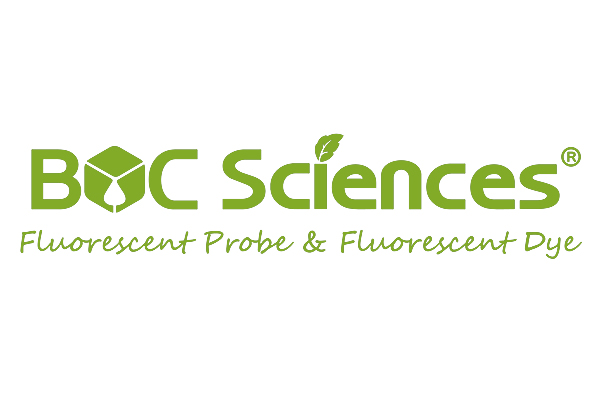
m-PEG8-DBCO
| Catalog Number | R01-0364 |
| Category | Cycloalkyne Dyes (DBCO) |
| Molecular Formula | C₃₆H₅₀N₂O₁₀ |
| Molecular Weight | 670.79 |
* Please be kindly noted products are not for therapeutic use. We do not sell to patients.
Product Introduction
m-PEG8-DBCO is a polyethylene glycol (PEG)-based PROTAC linker. m-PEG8-DBCO can be used in the synthesis of a series of PROTACs.
Chemical Information
Product Specification
Application
Computed Properties
| Purity | 98% |
| IUPAC Name | 4-(2-azatricyclo[10.4.0.04,9]hexadeca-1(16),4,6,8,12,14-hexaen-10-yn-2-yl)-N-[2-[2-[2-[2-[2-[2-[2-(2-methoxyethoxy)ethoxy]ethoxy]ethoxy]ethoxy]ethoxy]ethoxy]ethyl]-4-oxobutanamide |
| Canonical SMILES | COCCOCCOCCOCCOCCOCCOCCOCCNC(=O)CCC(=O)N1CC2=CC=CC=C2C#CC3=CC=CC=C31 |
| InChI | InChI=1S/C36H50N2O10/c1-41-16-17-43-20-21-45-24-25-47-28-29-48-27-26-46-23-22-44-19-18-42-15-14-37-35(39)12-13-36(40)38-30-33-8-3-2-6-31(33)10-11-32-7-4-5-9-34(32)38/h2-9H,12-30H2,1H3,(H,37,39) |
| InChIKey | DVNRUJGRVFXMTC-UHFFFAOYSA-N |
| Storage | Please store the product under the recommended conditions in the Certificate of Analysis. |
m-PEG8-DBCO is a versatile PEGylation reagent, commonly used in bioconjugation and drug delivery applications. Here are some key applications of m-PEG8-DBCO:
Bioorthogonal Chemistry: m-PEG8-DBCO is utilized in bioorthogonal reactions, which enable researchers to label and modify biomolecules in living systems without interfering with natural biochemical processes. Its strain-promoted alkyne-azide cycloaddition (SPAAC) reaction allows for the specific conjugation of azide-containing molecules. This versatility supports the study of dynamic biological processes in real-time.
Drug Delivery: In the field of drug delivery, m-PEG8-DBCO helps improve the pharmacokinetics and biodistribution of therapeutic agents. By conjugating drugs with m-PEG8-DBCO, the resulting PEGylated drugs exhibit longer circulation times and reduced immunogenicity. This conjugation technique enhances the efficacy of treatments and minimizes side effects.
Protein Modification: m-PEG8-DBCO is frequently used to modify proteins to improve their stability, solubility, and biological activity. By attaching PEG chains to proteins, researchers can reduce protein aggregation and enhance resistance to proteolytic degradation. These modifications are particularly useful in the development of therapeutic proteins and enzymes.
Immunoassays: m-PEG8-DBCO can be employed in the development of immunoassays, where it is used to link antibodies or antigens to solid supports or detection molecules. The specific and efficient conjugation enables the creation of highly sensitive and specific assays. This application is crucial for diagnostic purposes and for monitoring disease biomarkers.
| XLogP3 | 0.9 |
| Hydrogen Bond Donor Count | 1 |
| Hydrogen Bond Acceptor Count | 10 |
| Rotatable Bond Count | 27 |
| Exact Mass | 670.34654580 g/mol |
| Monoisotopic Mass | 670.34654580 g/mol |
| Topological Polar Surface Area | 123Ų |
| Heavy Atom Count | 48 |
| Formal Charge | 0 |
| Complexity | 925 |
| Isotope Atom Count | 0 |
| Defined Atom Stereocenter Count | 0 |
| Undefined Atom Stereocenter Count | 0 |
| Defined Bond Stereocenter Count | 0 |
| Undefined Bond Stereocenter Count | 0 |
| Covalently-Bonded Unit Count | 1 |
| Compound Is Canonicalized | Yes |
Recommended Services
Recommended Articles

- Hoechst Dyes: Definition, Structure, Mechanism and Applications
- Mastering the Spectrum: A Comprehensive Guide to Cy3 and Cy5 Dyes
- Fluorescent Probes: Definition, Structure, Types and Application
- Fluorescent Dyes: Definition, Mechanism, Types and Application
- Coumarin Dyes: Definition, Structure, Benefits, Synthesis and Uses
- Unlocking the Power of Fluorescence Imaging: A Comprehensive Guide
- Cell Imaging: Definitions, Systems, Protocols, Dyes, and Applications
- Lipid Staining: Definition, Principles, Methods, Dyes, and Uses
- Flow Cytometry: Definition, Principles, Protocols, Dyes, and Uses
- Nucleic Acid Staining: Definition, Principles, Dyes, Procedures, and Uses
Recommended Products
Online Inquiry








